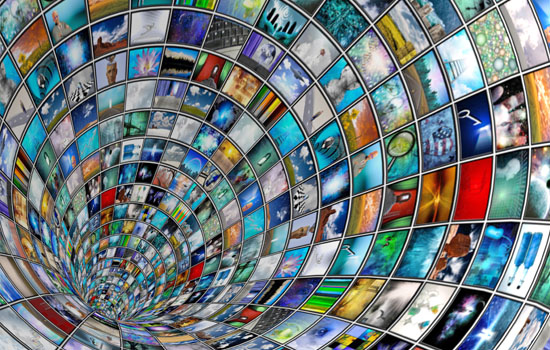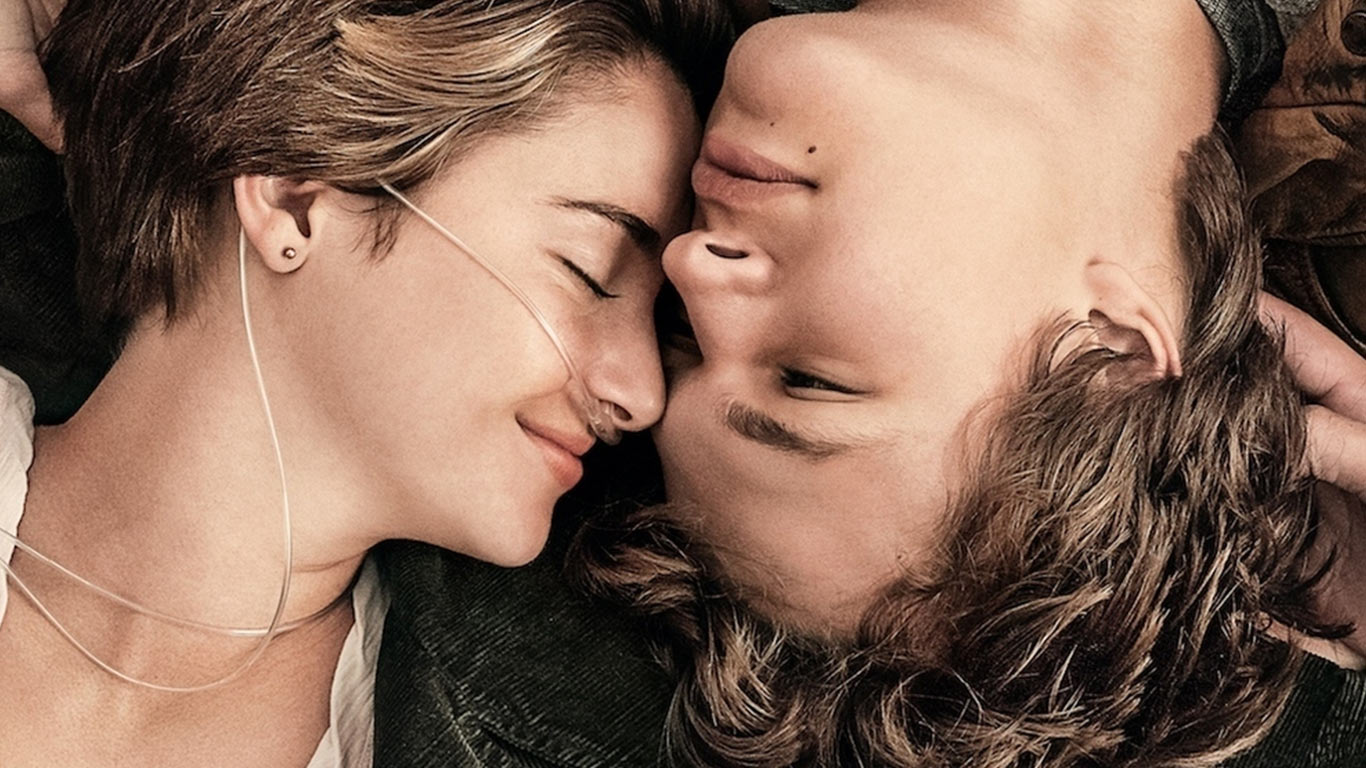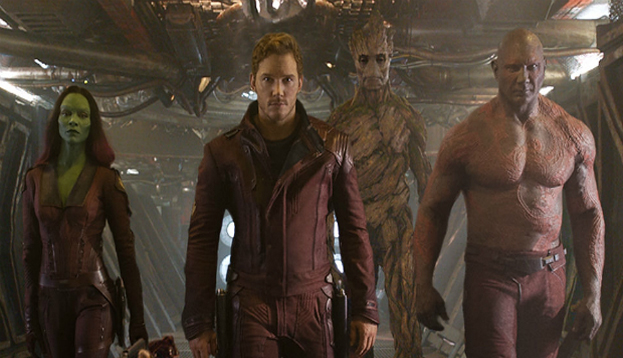With big smiles and open wallets, people around the world are going back to see Guardians of the Galaxy again and again. This past weekend, according to Box Office Mojo, the film retook first place at the box office, grossing $252 million domestically, and closing in on half a billion dollars worldwide after three weeks in release. That makes it the #1 movie of the summer {link no longer active}, and Guardians is shockingly on track to become the #1 superhero movie of the year, beating out Spider-Man 2, X-Men: Days of Futurepast, and even Disney Marvel’s own Captain America: The Winter Soldier.
So how in the world did this happen, and what is Hollywood learning from a global blockbuster that stars a sitcom second banana, a pro wrestler, a walking tree and a talking raccoon
To be sure, Guardians of the Galaxy had its doubters. Motley Fool, ubiquitous on Yahoo’s front page, predicted the film would be a total flop. The main characters were known only to a handful of fanboys. Director James Gunn hadn’t made a movie that grossed more than $10 million {link no longer active} domestically.
Besides dubbing the whole project “magic,” and dubbing Marvel Studio head Kevin Feige as the new James Lasseter (founder of Pixar), here are the takeaways for Hollywood regarding Guardians’ remarkable success:
1. It Pays to Go to the Library
We can trace the roots to the Guardians of the Galaxy movie to the Marvel Screenwriters Program, started by Marvel Studios to cultivate writers and incubate properties from the vast library of Marvel Comics characters. An array of second and third tier titles were offered to participants, and Nicole Perlman {link no longer active} (who had touched up the Thor script) chose the obscure Guardians of the Galaxy. Although much has been made of James Gunn’s rewrite, the point is that without Marvel’s foresight in letting Perlman dig deep into its stacks, Gunn would have had no Groot.

We’re seeing this elsewhere, as studios finally come to grips with the fact that comic books and other fictional universes have tons to offer, particularly if writers and producers apply some audiovisual imagination. While the CW’s Smallville TV series borrowed from Superman’s rogues gallery in name only, the more recent Arrow has been bold in its depiction of such costumed villains as Deathstroke, Merlyn, and the Suicide Squad. Now Fox’s Gotham, ABC’s Agents of SHIELD, and NBC’s Constantine will be tapping dozens of characters that would electrify comics geeks, but are hardly known to the unwashed masses.
Wildly ahead of the curve, Marvel cut a deal for Netflix to finance an entire farm team of secondary and tertiary characters such as Power Man, Iron Fist, and the Defenders in a series of maxi-series. The studio has made no bones about the fact that, as opposed to the Warner Bros./DC television characters, these heroes can then show up in Agents of SHIELD or even the feature films.
After Marvel’s success, the majors are catching on as well. More than a dozen obscure mutants showed us a good time in Fox’s X-Men: Days of Futurepast. Cyborg and Aquaman will make their live action premieres in Batman v. Superman. Sony will be plumbing the depths of its contractual corner of the Marvel Universe by turning a number of Spider-Man villains {link no longer active} into anti-heroes and giving them their own film series.
2. It’s Not Just a Brand, It’s a Story World
Much has been made of the “Marvel brand’ and how it has become trustworthy entertainment, like Pixar. That’s true, but there is something more at play. Although at first blush Guardians of the Galaxy seems to have little to do with the adventures of Iron Man, Captain America and the Avengers, even less acquainted audience members quickly realize that we are in the same story world as those more familiar properties; we are squarely in the Marvel Universe {link no longer active}. The film’s tone, humor and themes are in keeping with the rest of the series; Thanos, an uber-villain glimpsed in Avengers, plays a larger role here; the MacGuffin is another of those pesky Infinity Stones that everybody seems to be after in many of the films.

From this perspective, Marvel Studios is pioneering a 21st century franchise production philosophy, where the “transmedia story world” (a persistent fictional universe that extends across an array of media platforms, with each piece a self-contained addition to a greater mythology) rules over the whims of talent or the politics of corporate suits. Why do it this way when it would be so much easier to let different directors, studios, and licensees do whatever they pleased with each character and storyline The proof is in the results:
Story worlds connect with fans because they simulate reality in terms of consistency, depth, and scope. We are implicitly told that there is a design sensibility to this world that the creators aren’t simply making it up as they go along. Story worlds appeal to our collectors’ mentality: the more we buy into them, the more complete the puzzle becomes, even though we know the picture will never be fully complete. That intrinsic interactivity is quite simply fun, and our natural inclination is to become loyal to it, and lead our friends to it.
Christopher Nolan’s vision of Batman was compelling, but by its nature it was exclusive and self-limiting. Interestingly, Warner Bros. has veered away from this auteurist approach, and as of Zack Snyder’s Superman v. Batman, is now emulating the Marvel Cinematic Universe, pulling in members of the Justice League to start building a DC movie story world in earnest.
Universal is finally pulling its act together and uniting their library of classic monsters (The Mummy, Van Helsing, Dracula, Frankenstein, the Wolf Man, etc.) into a single cinematic universe under the aegis of Alex Kurtzman and Chris Morgan. The studio is doubling down with Anne Rice’s Vampire Chronicles, again acknowledging that the new reboot will tap into the breadth of her entire novel series, rather than simply adapting them one at a time with different casts and disparate visionaries at the helm.
Also, this year, the granddaddy of transmedia story worlds, Star Wars, has announced that all content moving forward “counts” and will be a part of a massive “interconnected long-form narrative.” Creator George Lucas had always made it clear that only his six films were the official story of Star Wars, and all of the thousands of comic books, hundreds of novels, and dozens of video games were not canonical. In a striking reversal, new Star Wars overseer Kathleen Kennedy has formed a mysterious story team deep within Lucasfilm, who will form a kind of narrative hub for the franchise, carefully coordinating between Disney, and a raft of licensees to make certain that if a Wookiee sneezes in a comic book, he gets a Gesundheit in a video game.
But it’s not just about appealing to the geeks, who have clearly inherited the media, if not the Earth. Story worlds make financial sense. Although movies may retain the prestige crown, we now live in a world where any content is accessible through a wide array of media platforms. More kids are being introduced to Harry Potter through the Lego video games than through the Scholastic books. It simply pays for the world we find first to be a vital part of the official world of the franchise, not simply a knock-off to make a buck off licensing. If any date can be the start of a long-term relationship, it behooves the storyteller to dress up a bit, and put their best foot forward.
3. Post-Millennials Are Vibing with Vulnerability
As the world seems to have grown harsher, there is a new closeness between Millennials (those born roughly after 1982) and their Gen-Z (or Pluralist) kids. Combine this with a greater sensitivity toward gender issues and “outsiders” in general, and you have a mass audience of — tweens and teens who are less interested in godlike beings (such as the heroes in the recent Superman and Green Lantern films), and more taken with heroes grappling with personal vulnerabilities, like we’re seeing in the Marvel films.
Director Gunn takes care to give us quick but touching back stories for most of the major characters in Guardians of the Galaxy. The result is that some soul slips into the bombast, and we relate to a band of loveable, strangely innocent weirdos. Interestingly, Universal is circling current vulnerability king Josh Boone, director of The Fault in Our Stars, to helm the first of their Vampire Chronicles.
 The Fault in Our Stars
The Fault in Our Stars
4. Talent Must Serve the Story World, Not the Other Way Around
Some have criticized {link no longer active} Marvel’s rapidly expanding universe of imposing a “house style” on filmmakers, stifling creativity and making the interconnected films and television shows hard to follow. Director Edgar Wright left Marvel’s Ant-Man ostensibly over creative differences stemming from the fact that he’d begun development on the project long before the move canon had matured, but was now being cajoled into bending his script to serve it. This could have meant adding characters from elsewhere in the canon, referencing the overall continuity outside of the story at hand, or even altering the plot to accommodate the superstructure of Marvel’s decade-long master plan.
We return to the distinction between a more traditional auteur-driven approach, and that of talent being brought in to create a new chapter in an ever-expanding but still integral story world. Marvel’s Kevin Feige brought an innate sense of reverence to the source material to the production process, dating all the way back to the launch of Iron Man and The Incredible Hulk. After all, when a writer or artist is brought in to script or draw an issue of a Marvel comic book, there were certain rules of style and continuity that had to be respected. Keep defying those and the entire universe starts to unravel. Why not observe the same approach with the movies? Keeping track of the canon is half the fun — as fans of soap operas and sports leagues would certainly attest. But does this kill creativity?
Directors such as Gunn, Joss Whedon (Avengers), and Anthony & Joe Russo (Captain America 2) don’t seem to think so. The Russos, in fact got to unfold a fairly subversive storyline with Winter Soldier, commenting sharply on America’s surveillance state. Gunn’s Guardians is fraught with themes and quirks that speak to his obsessions. Its psychedelic palette and surreal images hearken to the director’s love of 1970s pop culture, particularly prog-rock album covers, the airbrush painted sides of Chevy vans, and yes, Marvel Comics. But Gunn also understood walking into this situation that these toys are not his, and although his contribution to the sandbox counts big-time, he still has to play well with others. Like the best Frank Miller or Alan Moore scripted comic books, Gunn has proven that you can join a vast work in progress, yet still make your distinct voice heard over the din.
5. Keep it Warm
Finally, Guardians of the Galaxy hammers home the fact that warmth, cleverness and imagination will win out over uninvolving operatic spectacle any day. Godzilla became a low-key monster march the moment Bryan Cranston dropped from the movie. Lal-El’s aloofness in Man of Steel, capped by the decimation of Metropolis, left audiences slightly chilled. The first five minutes of Guardians, on the other hand, set millions of eyes glistening with tears, and our default response to the fundamental good-heartedness of its motley crew of outlaw heroes is to smile.
Warner Bros. was smart to cast a warmer Ben Affleck as Batman to Henry Cavill’s flinty Supes for the upcoming sequel. There is recent evidence that Superman’s costume will become less muted and more colorful {link no longer active}. Marvel may even take a cue from itself and infuse some of their Agents of SHIELD with a stronger sense of camaraderie, and humanizing emotional complexity in the show’s second season.
Breakthroughs don’t appear out of thin air, and it’s probably true that Guardians of the Galaxy would not have been nearly as successful five years ago as it is today, but it’s not just about the Marvel brand. Any number of studios can cobble together transmedia story worlds, but the true takeaway out of these five lessons is that audiences are tiring of spectacle without drama, confrontations without imagination, and super powers without heart. And a wiggling tree dude with Vin Diesel’s voice never hurts…
_______________
Jeff Gomez is CEO of Starlight Runner Entertainment, a New York based production company that consults with Hollywood studios on some of their most popular entertainment franchises. Follow him @Jeff_Gomez.

